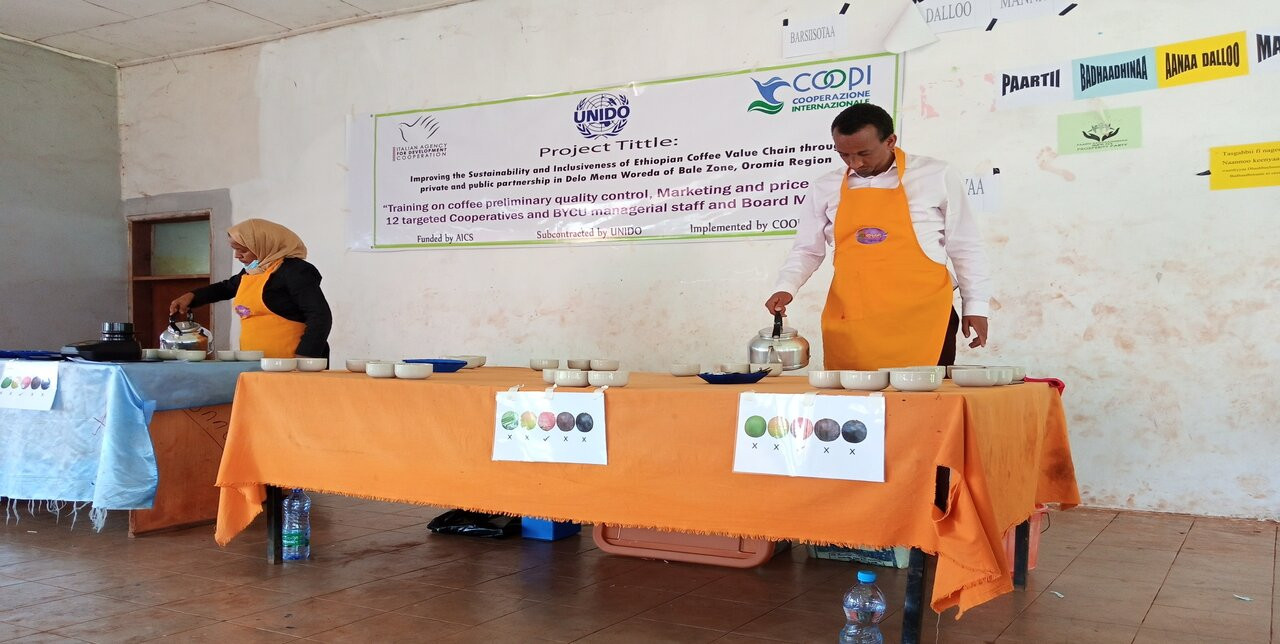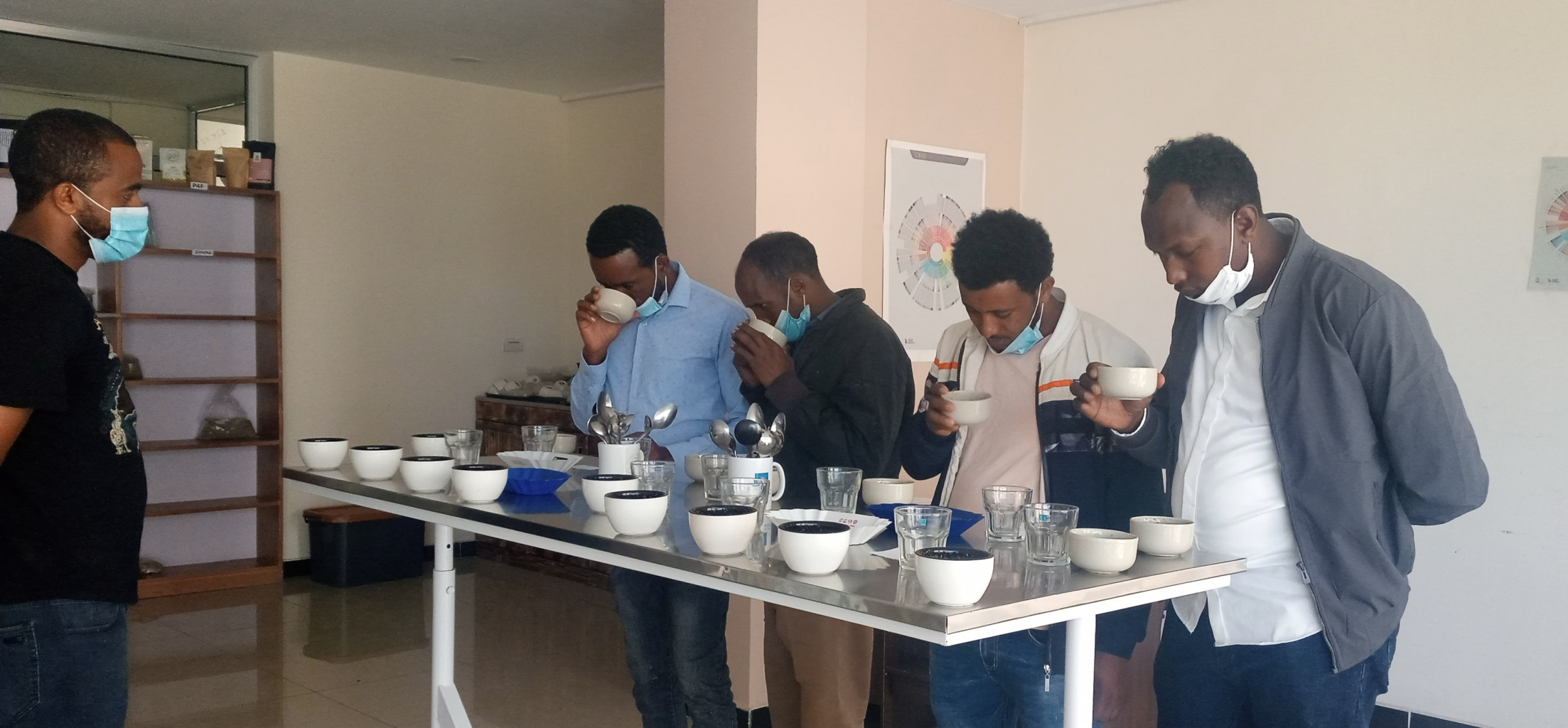10-03-2021 | di COOPI
Ethiopia. COOPI supports the production of high quality coffee
Since October 2016, COOPI - Cooperazione Internazionale has been engaged in coffee value chain development in Ethiopia through the project "Improving the sustainability and inclusiveness of Ethiopia's coffee value chain through public and private partnership, in the Oromia region, Bale zone Delo Mena district" funded by the Italian Agency for Development Cooperation (AICS) in collaboration with UNIDO, the United Nations Industrial Development Organization.
COOPI initially provided technical training to 12 cooperatives, thus including 5,649 farmers holding a total of 22,543 ha - about 3.9 ha/family. Subsequently, it equipped each cooperative with a Coffee Drying Center. Each center is equipped with fully functional drying beds, temporary warehouses, and moisture testers.
The coffee produced and hulled achieved Grade 3 certification during the first phase (with 4,320 kg exported), and Grade 2 during the second phase (with 21 tons exported). The quality of the coffee produced is rated annually according to a scale ranging from 1 to 10 and where 1 represents the highest level. So, for the first time, a coffee produced in the Gasera woreda has reached this level of certification.
"This is very important result that concretely indicates the improvement of quality. This step forward has resulted in a net revenue for the Burka Yadot Cooperative Union of 312,777.16 ETB, and an estimated 15% increase in net revenue for farmers compared to local market prices" explains Davide Prata, COOPI's head of mission in Ethiopia.
Furthermore, the project is working on the Union and cooperative marketing strategy in order to support and facilitate the coffee export. Indeed, the selling of the coffee abroad at a better price than in the internal market has been an fundamental incentive for farmers to apply the improved techniques learnt through the project trainings and follow-ups and consequently to enhance the coffee quality.
COOPI led the overall implementation of the project in Delo Mena. In this area, coffee grows wild as a shrub or small and Arabica coffee is the dominant variety in the area and particularly in the protected Harenna rainforest.




 Ethiopia
Ethiopia
